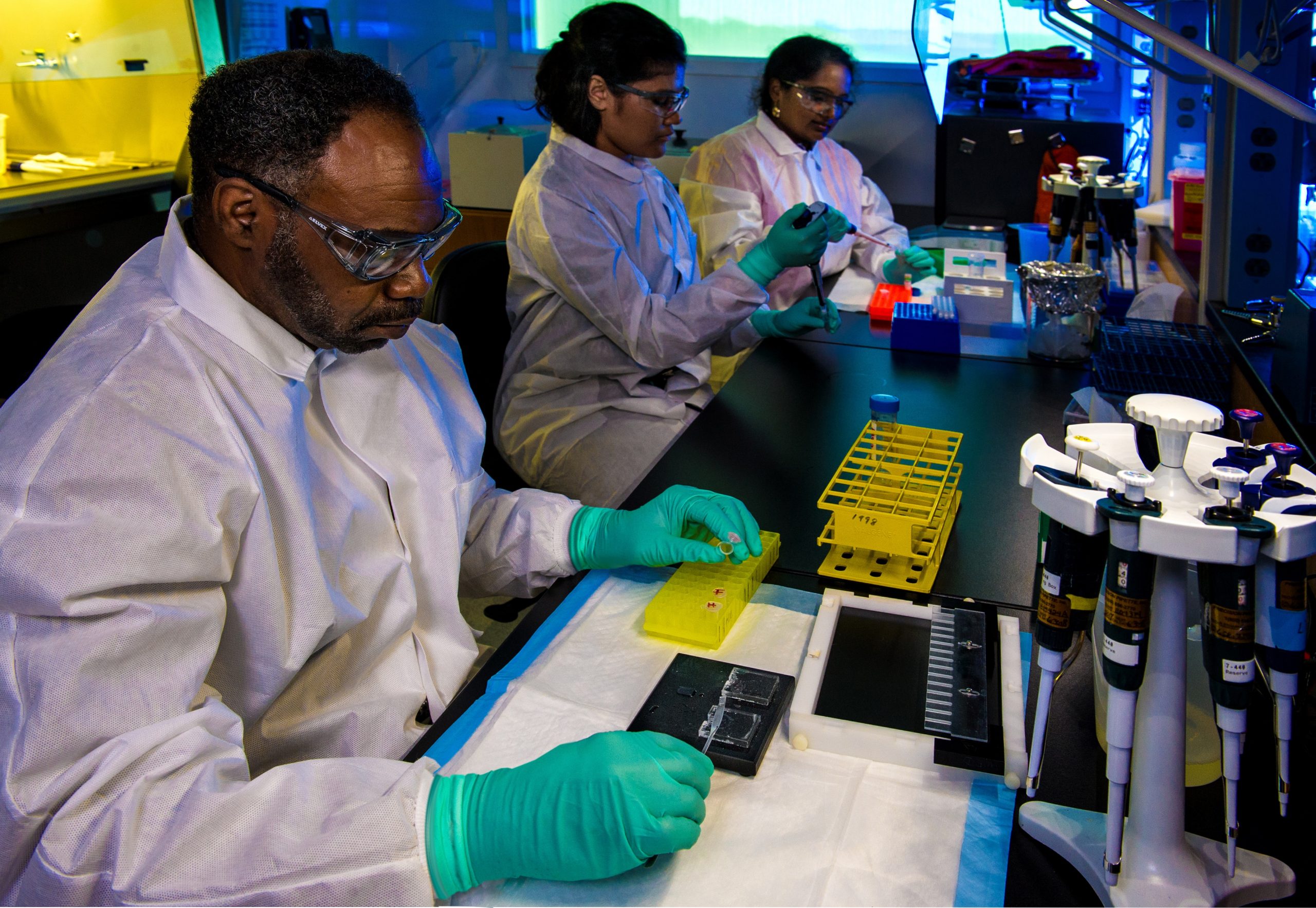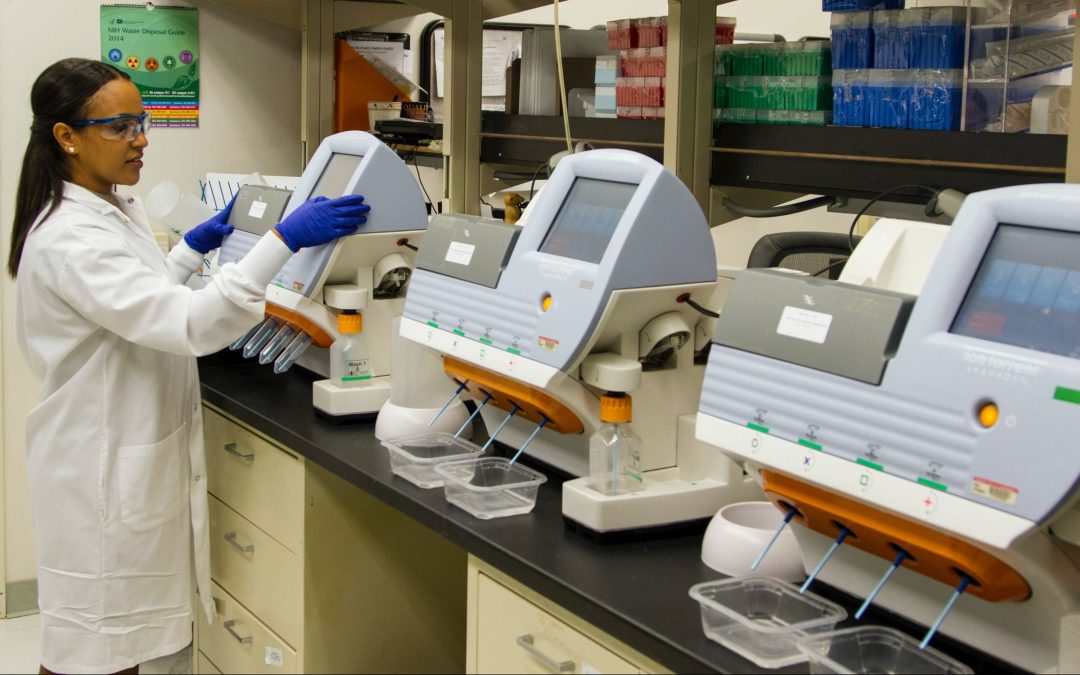On November 19, the Council adopted the legislative basis for research and innovation (R&I) partnerships under Horizon Europe, so-called ‘joint undertakings’, launching two new EU public-private partnerships for health R&I: the Global Health EDCTP 3 and the Innovative Health Initiative (IHI). The main mission of EDCTP3 is to fight infectious diseases in sub-Saharan Africa and the main elements of the partnership (that we previously detailed here) remain unchanged. However, there are a few novel aspects worth noticing and some open questions remain. Here is our take on the EDCTP3 proposal:
The scope of EDCTP3
What does the Regulation say?
EDCTP3 has two general objectives: promoting health R&I to address “the socioeconomic burden of infectious diseases in Sub-Saharan Africa” and contributing to increasing “health security”. EDCTP3 also has specific objectives such as strengthening health R&I capacities in sub-Saharan Africa for infectious diseases and epidemic preparedness, facilitating better alignment between EU Member States, associated countries and sub-Saharan African countries through a common Global Health R&I agenda and promoting North-South and South-South collaboration.
What does this mean?
Although poverty-related and neglected diseases (PRNDs) are not specifically mentioned in the objectives, the Recitals state that EDCTP3 “should address the lack of appropriate diagnostics, treatments and vaccines, among other so-called health technologies, to address infectious diseases, such as HIV, malaria and tuberculosis but also other poverty-related and neglected infectious diseases, that are prevalent in Africa”.
Ultimately, the scope of work will be defined in the strategic R&I agenda (SRIA) and the annual work programmes. The latest public draft strategy refers to “HIV, TB, malaria, neglected infectious diseases [as per the WHO definition, and relevant to Africa[1], diarrhoeal diseases, lower respiratory tract infections, and emerging/re-emerging infections affecting sub-Saharan Africa [as well as…] antimicrobial resistance, climate-crisis-provoked changes in infectious disease incidence, and co-infections and co-morbidities (including comorbid non-communicable conditions) associated with target diseases or their treatment”.
One of the tasks of EDCTP3’s Scientific Committee will be to “review the landscape of poverty-related and neglected diseases to identify the Global Health EDCTP3 Joint Undertaking’s role in partnership with other stakeholders to accelerate the development or improvement of interventions against those diseases”.

Membership
What does the Regulation say?
The EDCTP3 Governing Board will have two members, each one holding 50% of the voting rights. On the one hand, the European Union (EU), represented by the European Commission (EC); and on the other, the EDCTP Association, a non-profit organisation registered under Dutch law comprising the governments of European and sub-Saharan African countries participating in the partnership (Participating States).
What does this mean?
The EDCTP3 Joint Undertaking is a new legal entity that will have its own Secretariat, which is expected to be based in Brussels, as well as its own CEO. The Secretariat of the EDCTP Association in The Hague will continue to exist and manage the EDCTP2 programme, in addition to coordinating the Participating States and their contributions to the EDCTP3 Joint Undertaking.
Eligibility criteria for funding
What does the Regulation say?
There are four independent pathways to accessing EDCTP3 funding:
- To be based in an EU country
- To be based in a “constituent entity” (member country) of the EDCTP Association.
- To be based in a country associated to the EU’s Horizon Europe R&I framework programme
- Exceptionally, entities based in third countries may be eligible for funding if this is provided for by the work programme, “in specific call topics or in the event of a call addressing a public health emergency”.
What does this mean?
- Some countries are or will be associated to Horizon Europe, thereby entities based there will become eligible for EDCTP3 funding. All updates on negotiations for third country associations to Horizon Europe are available here, and more details about associated countries here.
- Association talks with the UK are currently paused due to political disagreements but the UK is still expected to associate to Horizon Europe. To ensure its entities are eligible for EDCTP3 funding, the UK must formalise its association.
- Association talks with Switzerland are currently paused and there are no prospects of association for the time being.
- The current list of participating states in the EDCTP Association includes 14 European countries (including the UK) and 16 sub-Saharan African countries. However, according to the Articles of Association of the EDCTP, membership requires being associated to the EU research framework programme (except for sub-Saharan African countries). Hence, the UK will have to formalise its association to Horizon Europe to stay a member of EDCTP3 and for UK entities to be eligible for funding.
- Switzerland and Angola are aspirant members of the EDCTP Association and therefore, they are not eligible for EDCTP3 funding until their membership is formalised.
- These provisions also mean that, contrary to the current EDCTP2, not all sub-Saharan African countries are automatically eligible for funding, but only those that are members of the EDCTP Association. Sub-Saharan African countries must become members of the EDCTP Association to retain access to EDCTP3 funding.
- Exceptionally, the EDCTP3 annual work programme can identify entities based in any country as eligible to participate and/or for funding under specific calls. The Governing Board is responsible for the work programme, including such provisions. The criteria for such decisions will be based on the detected need: e.g., a legal entity prescribed by the call can be defined as not eligible to receive funding because it is already a contributing partner, or for other reasons.

The budget: floors, ceilings and types of contribution
What does the Regulation say?
The EU contribution will be up to 800 million EUR in cash from the Union’s central budget of which ≈60 million EUR will cover the administrative costs of the EDCTP3. This amount is conditional to the following contributions:
- At least 439 million EUR from “members other than the Union or its constituent or affiliated entities”
- Up to 400 million EUR from “contributing partners or its constituent or affiliated entities”
EU contributions “may be increased with contributions from third countries associated to Horizon Europe […] provided that the total amount by which the Union contribution is increased is at least matched by the contribution of members other than the Union […]”. In-kind contributions are those that contribute to “operational activities” as well as to “additional activities approved by the governing board”.
What does this mean?
- If the matching requirements are met, the EDCTP3 will have a minimum (cash) budget of 800 million EUR from the EU’s central budget.
- “Members other than the Union or its constituent or affiliated entities” refers to the members of the EDCTP Association (the Participating States), who thus need to contribute 439 million EUR in cash or in kind to EDCTP3.
- The contribution from “contributing partners or its constituent or affiliated entities” must also be up to 400 million EUR in cash or in kind. These partners are “any country, international organisation or legal entity […] or a constituent entity of a member or an affiliated entity of either, that supports the objectives of a joint undertaking in its specific area of research and whose application has been approved […]”
- This means that the Commission could match contributions from, e.g., Switzerland or from philanthropic organisations to the EDCTP3 on the condition that they have submitted a letter of endorsement to the EDCTP3 Board and were approved for participation.
- In-kind contributions to additional activities approved by the Governing Board are:
- “Activities aligned with the EDCTP Association and “independently managed in accordance with national funding rules”.
- “Activities implemented by sub-Saharan African governmental research organisations”.
- “Activities which promote networking and partnerships building relationships with multiple private and public-sector organisations”.
- Activities that support “the development of research infrastructures such as clinical trial networks or cohorts [within the scope of the EDCTP3]” and that support “strengthening health systems’ preparedness for carrying out research activities [within the scope of the EDCTP3]”.
- Members of the EDCTP3 other than the Union could carry out other activities. However, to be considered as in-kind contributions, activities must contribute to the objectives of EDCTP3.
- The EU budget for 2022 allocates 68 million EUR for EDCTP3 which may be topped up with additional – albeit limited – funding unused from the EU budget in 2021 carried over.
Governance structure
What does the Regulation say?
- The governance and advisory bodies of the EDCTP3 Joint Undertaking shall be: the Governing Board, the Executive Director, the Scientific Committee (SC) and the Stakeholder Group (SG).
- The Governing Board shall be composed of six representatives from the EC (on behalf of the EU) and six representatives from the EDCTP Association.
- The SC shall be the scientific advisory body and, among other things, shall assist in the design of the strategic and scientific planning of the activities; advise on strategies to foster synergies and partnerships; contribute to the preparation of strategic and scientific documents; etc.
- The SG provides input on the scientific, strategic and technological priorities.
What does this mean?
- Decisions will be taken by consensus, and each party has veto power over the decisions of the EDCTP3. In general, all bodies will hold ordinary meetings at least twice a year.
- The Governing Board drives decision-making. The Board is responsible for implementing EDCTP3’s general, specific and operational objectives; it decides the financial rules and adopts the SRIA and the work programmes. It also assesses, accepts or rejects applications for membership and contributing partners.
- The relationship and dynamic between the bodies of the EDCTP Association and the EDCTP3 Joint Undertaking remains to be defined.
- The first Board meeting of the EDCTP3 is expected to take place in January 2022. The Board will approve the EDCTP3 SRIA.
- There is political agreement to continue to support the Africa office of the EDCTP Association, with details expected soon.
[1] See footnote 7, in page 76, of the draft strategy for additional details.
Photos: Unsplash

